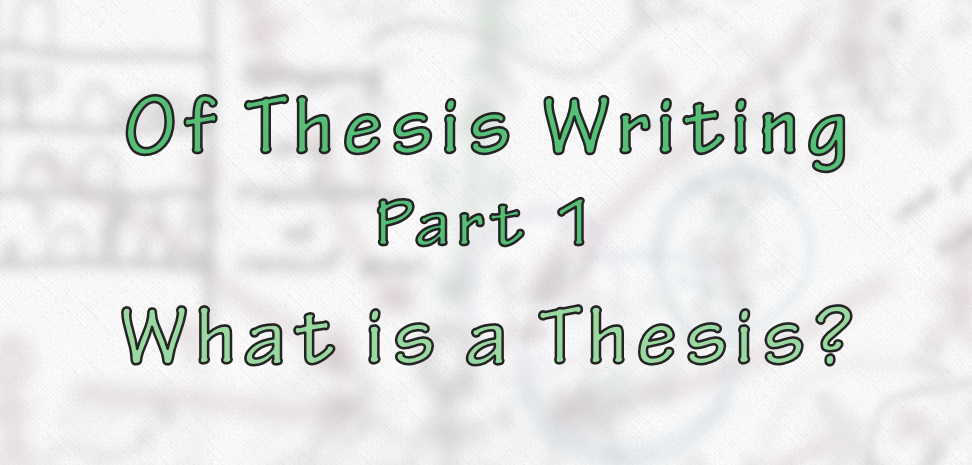This is a 5-part article series on understanding and writing a thesis. If you are a student and unsure of what even is a thesis, then hopefully you can find some inspiring answers here!
When your studies in either BSc or MSc level near an end, you will be faced with a challenge to create a thesis. That challenge might be something you have prepared yourself during your studies, or it might be something that takes you totally off-guard. If you have already advanced yourself purposefully to succeed in that challenge, then most of what is described here will come as a no surprise. In the other case now might be a high time to acknowledge your soon-to-be future and start preparing yourself.
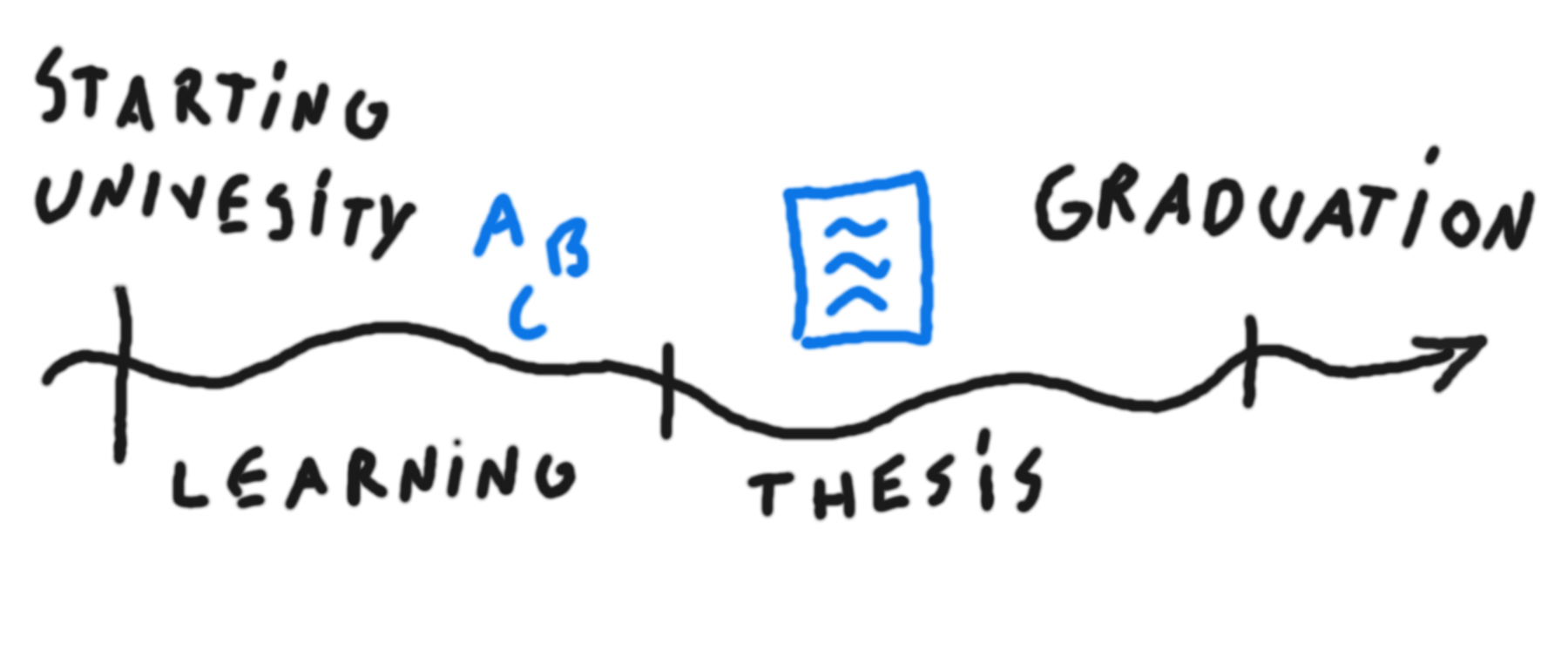 Your thesis is a manifestation of your goals. In that regard your should not be terrified of it, on the contrary, you should think of it as the quest you have been waiting for all so long and is here now. During your perhaps somewhat streamlined studies it is easy to forget why did you come to the university in the first place. Think back on that initial motivation. What skills did you come here to learn? What knowledge did you want to gain? What did you plan to do in the future with all the learned skills and knowledge? Perhaps your answers were a bit different in the beginning of your studies than they are now. It is totally normal that the more you learn about something, the more turns your path may take. The most important thing is always to have some goal, some answers to those questions. Equally important is to have the natural adventurousness to go towards your set out goals. Your thesis is exactly that. Means for you to follow your chosen path.
Your thesis is a manifestation of your goals. In that regard your should not be terrified of it, on the contrary, you should think of it as the quest you have been waiting for all so long and is here now. During your perhaps somewhat streamlined studies it is easy to forget why did you come to the university in the first place. Think back on that initial motivation. What skills did you come here to learn? What knowledge did you want to gain? What did you plan to do in the future with all the learned skills and knowledge? Perhaps your answers were a bit different in the beginning of your studies than they are now. It is totally normal that the more you learn about something, the more turns your path may take. The most important thing is always to have some goal, some answers to those questions. Equally important is to have the natural adventurousness to go towards your set out goals. Your thesis is exactly that. Means for you to follow your chosen path.
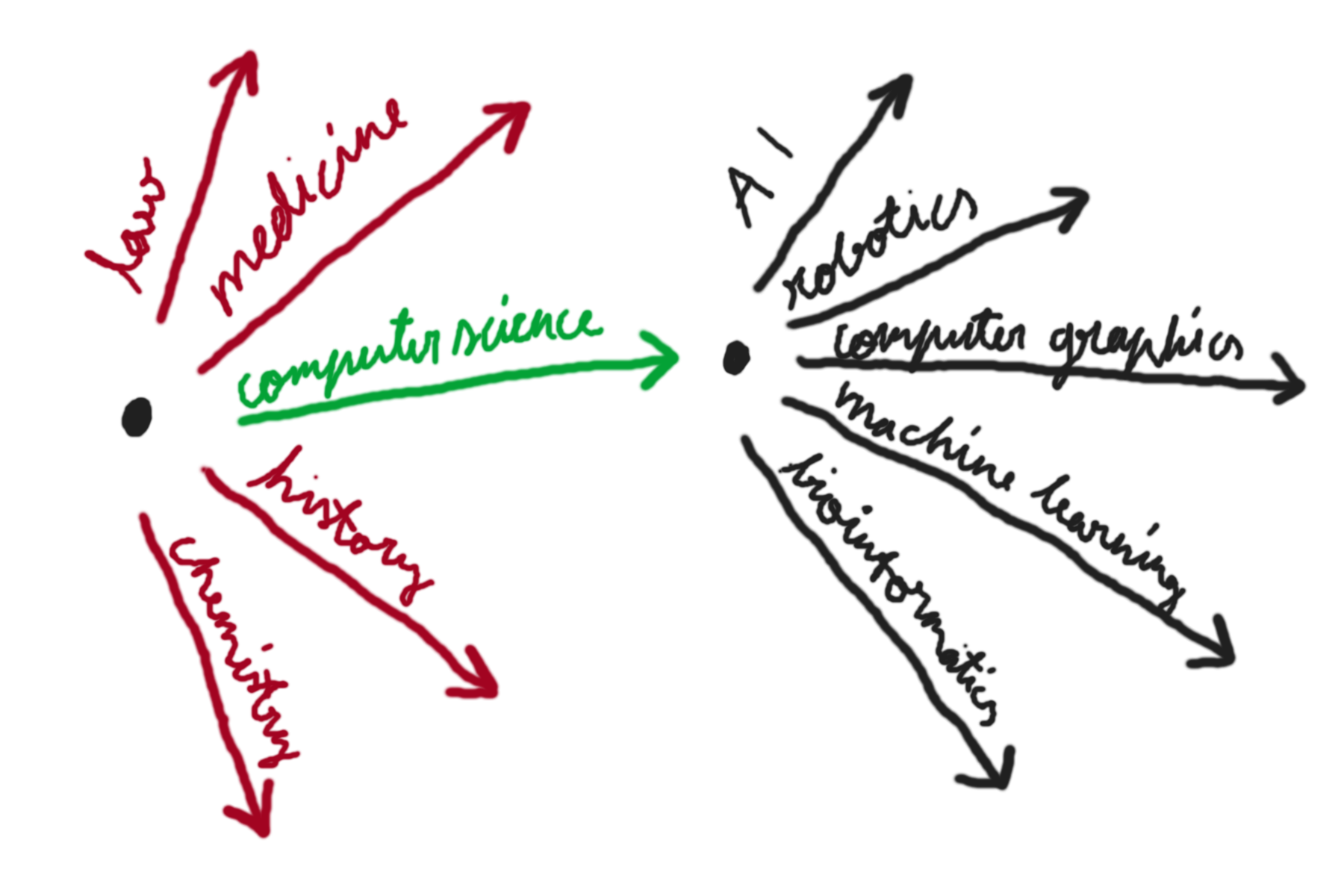 From a broader perspective you can think of a thesis as a doorway to specialization. We go through such doorways multiple times in our lives. For example when you finished high-school and decided to study computer science in the university. After high-school all the doors to the fields of literature, chemistry, medicine, law, languages etc were opened to you. You chose your path in computer science. You chose the field you wanted to invest yourself in and to become a professional at. The thesis is very similar to that choice. During your studies you have seen many-many interesting specializations in computer science like artificial intelligence, programming languages, natural language processing, data mining, computer graphics etc. Your thesis poses you a question, what field you would like to act in independently – without an educator looking over your shoulder and telling you what to do all the time. What is that position you would get a job in? What questions and problems you want to have an answer for when others come to you for help?
From a broader perspective you can think of a thesis as a doorway to specialization. We go through such doorways multiple times in our lives. For example when you finished high-school and decided to study computer science in the university. After high-school all the doors to the fields of literature, chemistry, medicine, law, languages etc were opened to you. You chose your path in computer science. You chose the field you wanted to invest yourself in and to become a professional at. The thesis is very similar to that choice. During your studies you have seen many-many interesting specializations in computer science like artificial intelligence, programming languages, natural language processing, data mining, computer graphics etc. Your thesis poses you a question, what field you would like to act in independently – without an educator looking over your shoulder and telling you what to do all the time. What is that position you would get a job in? What questions and problems you want to have an answer for when others come to you for help?
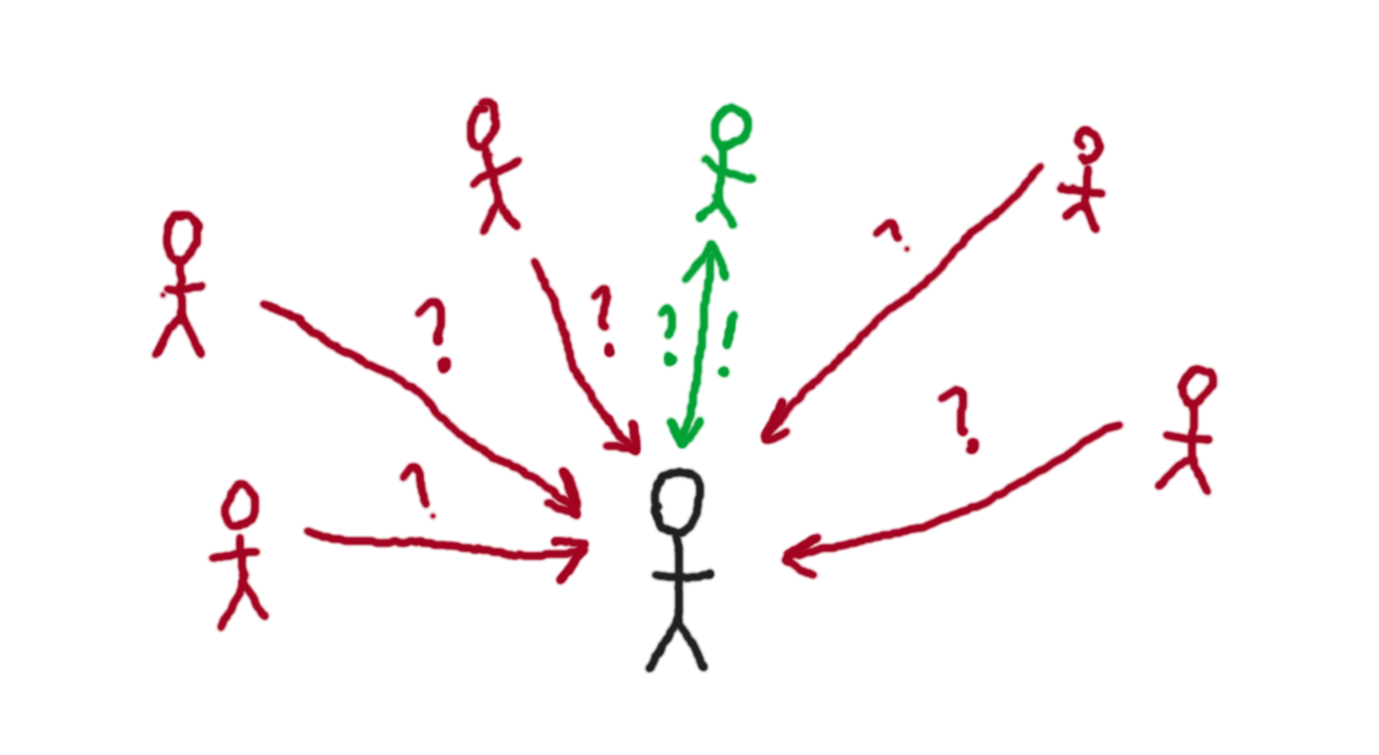
Academia, Research and Science
During your studies you might be confused about what are things like “academia”, “research”, “science” and how much “research” you need to do for your thesis to be considered “academic” or “scientific” enough.
Google’s dictionary defines the following:
- Academia – the environment or community concerned with the pursuit of research, education, and scholarship.
- Science – the intellectual and practical activity encompassing the systematic study of the structure and behaviour of the physical and natural world through observation and experiment.
- Research – the systematic investigation into and study of materials and sources in order to establish facts and reach new conclusions.
One similarity between all those terms is the prevalence of some sort of a journey – pursuit, study, investigation. This means that the goal here is not solely to come up with an answer that an educator deems correct, but equally important is your explanation on how you came about that answer. In some specific cases you might not have an answer at all. This can also be thought about somewhat philosophically that there is no absolute and objective truth. Rather there are occurrences, which tend to happen under certain conditions. For example think of a drawer. You might say that the drawer stays closed unless someone opens it. In one frame of reference that is correct. But then you might say that what if someone tilts the entire cupboard or there is an earthquake? Then you might say that the drawer stays closed if there are no external forces acting upon it in the direction of the drawing opening. But then you might think about that what if there are forces acting on the rest of the cupboard, but not on the drawer? What role does friction and gravity play? What if the drawer has a lock on it? Did the drawer move only 1 cm and you considered it opened?
 That is why it is equally important to describe your journey compared to the result you got. That description actually tells the reader how to interpret your result.
That is why it is equally important to describe your journey compared to the result you got. That description actually tells the reader how to interpret your result.
Both “science” and “research” emphasize that your journey needs to be systematic, in accordance to some logical approach, plan or model. This is to minimize the probability that you make somewhat arbitrary leaps in your journey and end up somewhere you can not lead others to, ie can not fully explain how you got there. Even if some answer comes to you logically, you should be able to explain your logic behind it. Perhaps the answer you came to is true in some cases, but false in others. By systematically mapping out your journey, you can see also other paths, which one could take. That allows you to write a more detailed description of what is actually happening on your journey. Humans have developed many tools to systematically approach just that. In order to be able to see the different possibilities more clearly, consolidate the more prominent ones and dissipate the less accurate ones.
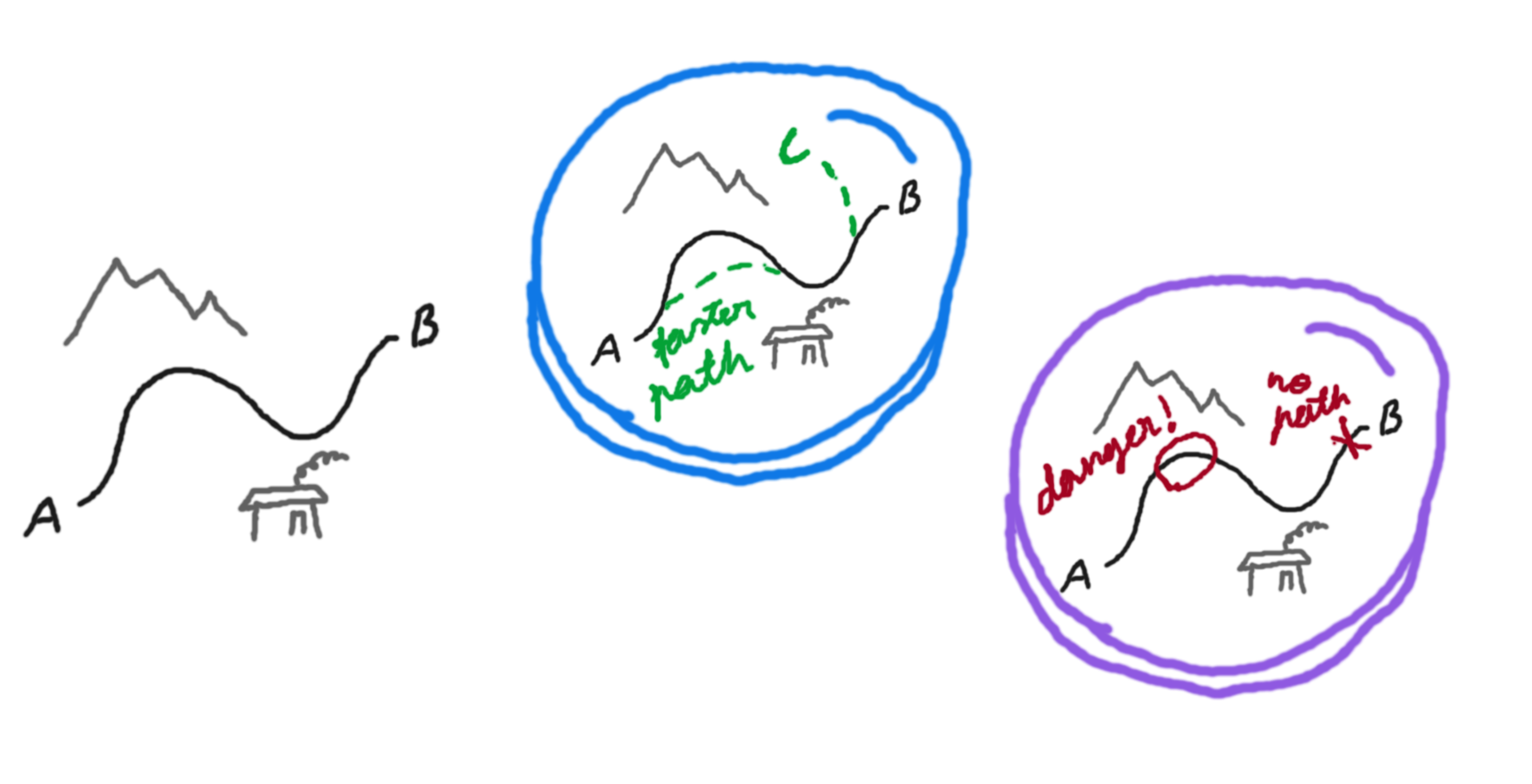 Finally, the term “research” brings in the study of materials and sources, and the establishment of facts and new conclusions. This is to say that your journey should have a start location and an end goal. You should start the journey in a known location, in a place that is already mapped out by others before you. Without establishing that your description of the journey is meaningless. It would be like mapping out a road from A to B, but A is as mysterious of a location as the journey from it to B. However, it is important to note that there might not be a known journey to A yet. There are many theories in different fields, which say: “if we manage to get to A, then here is the road to B.” In those theories A is well defined. The problem occurs, when you leave A undefined. When you do not delve into the maps of the adventurers that came before you and fail to fix a specific starting point for your adventure. More on this in the Contents of a Thesis chapter.
Finally, the term “research” brings in the study of materials and sources, and the establishment of facts and new conclusions. This is to say that your journey should have a start location and an end goal. You should start the journey in a known location, in a place that is already mapped out by others before you. Without establishing that your description of the journey is meaningless. It would be like mapping out a road from A to B, but A is as mysterious of a location as the journey from it to B. However, it is important to note that there might not be a known journey to A yet. There are many theories in different fields, which say: “if we manage to get to A, then here is the road to B.” In those theories A is well defined. The problem occurs, when you leave A undefined. When you do not delve into the maps of the adventurers that came before you and fail to fix a specific starting point for your adventure. More on this in the Contents of a Thesis chapter.
Equally important is your end goal. In the beginning it is important to define some end goal, but as you keep travelling, the place you might end up in can be different from your initial goal. It might differ in small aspects, in that sense you should describe that how does the location B actually look like. However it may also be a completely different place C. In that case you should clearly explain what happened. Was it that your assumption of B was incorrect? Could other people’s assumption of B be also incorrect? Or is there a proclivity for people going to B actually ending up in C? What could cause that and how would someone approach that problem? This latter part is usually in a chapter named “Discussion” in a thesis. The author faced a number of new problems or their systematic methodology lead them to a different goal and now they want to pose a set of observations and descriptions for future research.
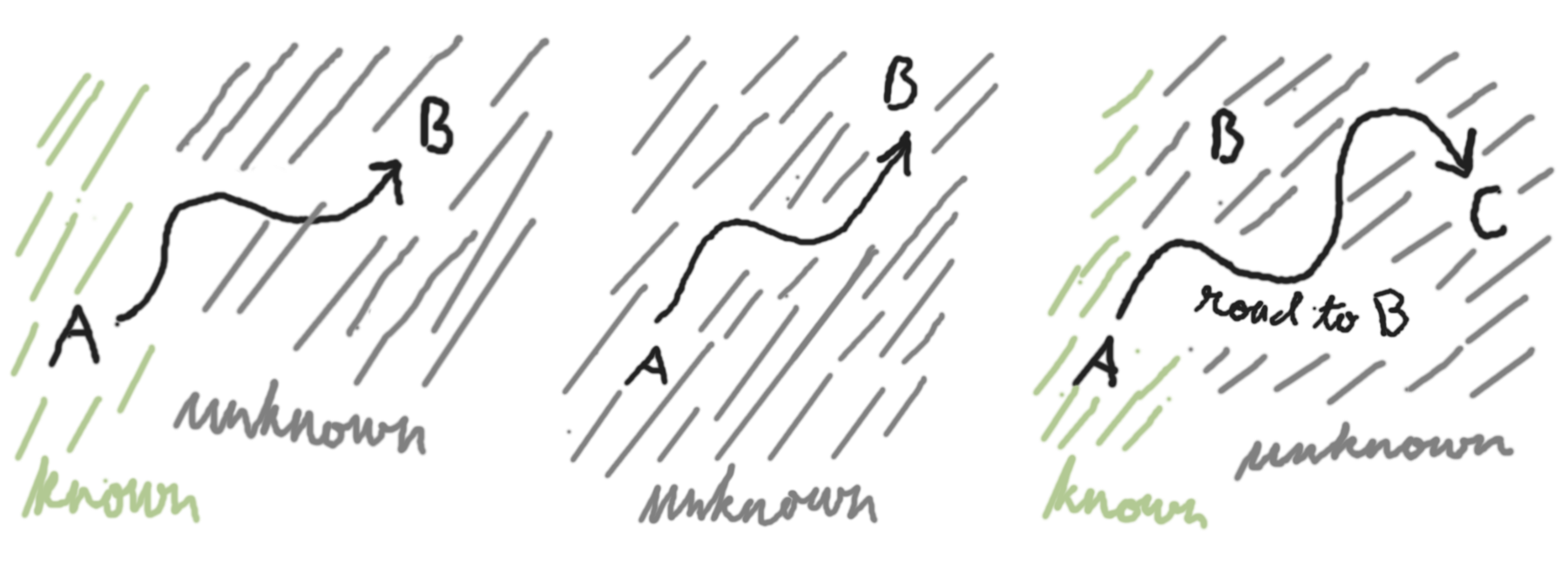 This entire concept can also be thought about more abstractly. It does not have to be about finding out a new very generalizable and useful fact about the nature of our world. If you think about this from a different level, then the interesting unknown also occurs at already somewhat mapped out areas. Even more, nothing ensures that the way we have mapped out our already existing knowledge is necessarily the best or right way. Equally important to finding new information is the maintenance of our existing information. This can mean that the existing information is either tested again or presented in a more coherent or accessible way. Think of it as instead of building a new floor to a tower, you test the structural integrity, find new uses or put up navigational signs on one of the existing floors. More about this in the Types of a Thesis chapter.
This entire concept can also be thought about more abstractly. It does not have to be about finding out a new very generalizable and useful fact about the nature of our world. If you think about this from a different level, then the interesting unknown also occurs at already somewhat mapped out areas. Even more, nothing ensures that the way we have mapped out our already existing knowledge is necessarily the best or right way. Equally important to finding new information is the maintenance of our existing information. This can mean that the existing information is either tested again or presented in a more coherent or accessible way. Think of it as instead of building a new floor to a tower, you test the structural integrity, find new uses or put up navigational signs on one of the existing floors. More about this in the Types of a Thesis chapter.

BSc vs MSc
The difference of a BSc thesis and MSc thesis is often dependent of the students writing those. Both are kind of hallmarks of achieving some level of skills and knowledge in a chosen field. On the other hand I have seen BSc students writing a MSc level theses and vice versa. Also it seems that the criteria on what constitutes a good BSc or MSc level thesis differs from person to person. Even more I think more emphasis should be on the level of an individual student. Namely, how well has the student utilized in the thesis their individual traits. Meaning that it is not that important how well a student fits inside some metaphysical box, but how well are they using and developing their own personal attributes for a successful exploration. However, there is a certain broad set of skills (eg abstraction, research, writing, speaking) that are expected to be on par. There are also certainly more requirements for being a better explorer in the MSc thesis compared to the BSc thesis. Overall we can describe some general strokes.
The BSc thesis is often one of the first systematic exploration journeys of its scale that a student undertakes. Naturally there are smaller journeys going on through the studies all the time, but mostly they are into known areas and the journey is facilitated by an educator. For the students, who might have not yet taken the whole responsibility for their self-development, the BSc thesis could turn out to be a horrifying monster for which they lack the tools to face. It will be their first adventure into the unknown, which is lead mostly by themselves and serves largely their own goals. There are of course supervisors, who do their best to encourage and guide the student. There is also an external goal to provide a map of the exploration, which others can use to take on a similar journey. But in the broad sense it is the student’s responsibility to themselves to become an individual explorer and navigator the degree of science represents.
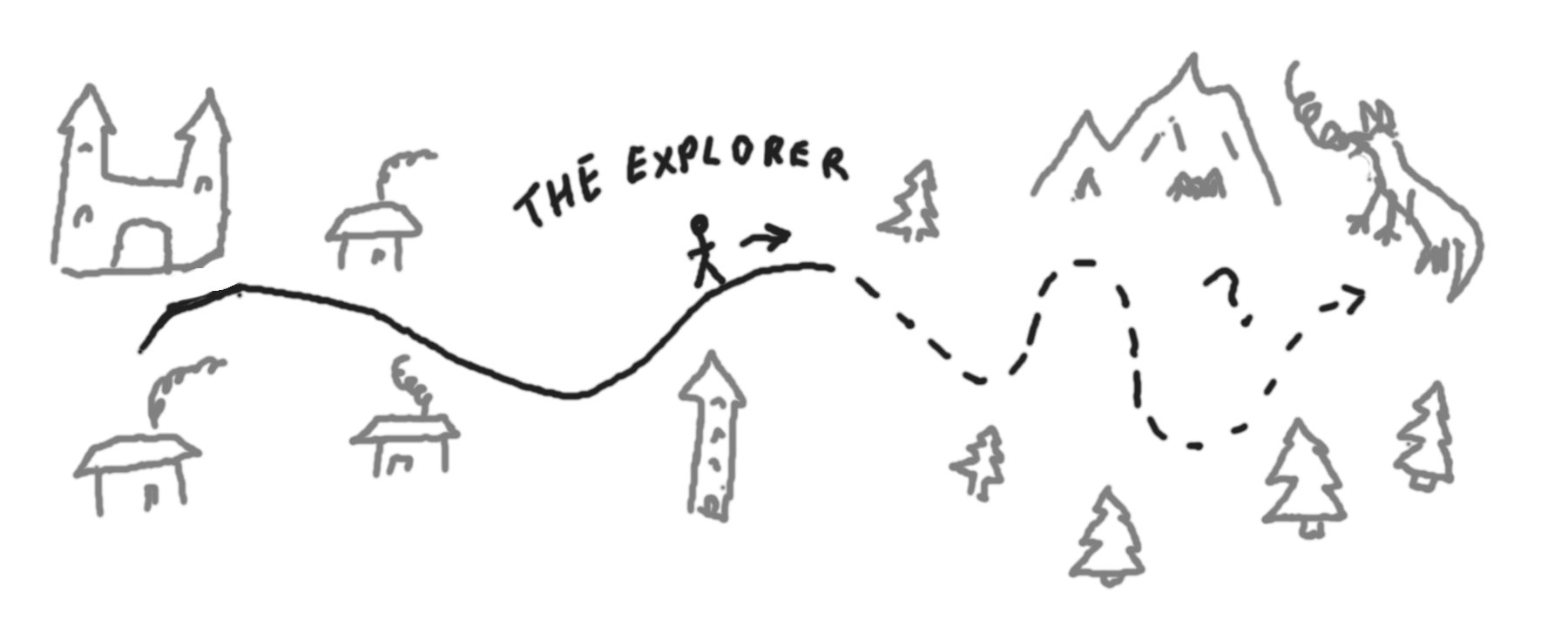 Largely BSc theses are explorations into the author’s unknowns. Meaning that they show the author’s capabilities to navigate the maps created by previous explorers. It is expected that in the thesis the author uses many such maps to bind them together into something meaningful for mostly themselves and lessly to others. That is not to say that the BSc thesis will be totally useless for others. Rather that the results have the most application for the author. They usually are not as thoroughly researched and consolidated as the results in a MSc thesis would be. This generalization does not try to put a BSc thesis into a bad light, but just illustrates the facts that the BSc thesis is 30% of the amount of work required for a MSc thesis, and it is often the first such endeavour for a BSc student. The conclusion of this generalization is that the thesis is the first bigger step into the specialization the student desires. Thus it is only natural that a thesis is comparatively more useful for the student than to the general academic population. The goal of the thesis, however, should be posed such that it is useful to others and that part should also be aimed to maximise. The result should still be a map and a very readable one at that. However, as mentioned before, there certainly are excellent BSc students, whose journeys help many others as well as themselves.
Largely BSc theses are explorations into the author’s unknowns. Meaning that they show the author’s capabilities to navigate the maps created by previous explorers. It is expected that in the thesis the author uses many such maps to bind them together into something meaningful for mostly themselves and lessly to others. That is not to say that the BSc thesis will be totally useless for others. Rather that the results have the most application for the author. They usually are not as thoroughly researched and consolidated as the results in a MSc thesis would be. This generalization does not try to put a BSc thesis into a bad light, but just illustrates the facts that the BSc thesis is 30% of the amount of work required for a MSc thesis, and it is often the first such endeavour for a BSc student. The conclusion of this generalization is that the thesis is the first bigger step into the specialization the student desires. Thus it is only natural that a thesis is comparatively more useful for the student than to the general academic population. The goal of the thesis, however, should be posed such that it is useful to others and that part should also be aimed to maximise. The result should still be a map and a very readable one at that. However, as mentioned before, there certainly are excellent BSc students, whose journeys help many others as well as themselves.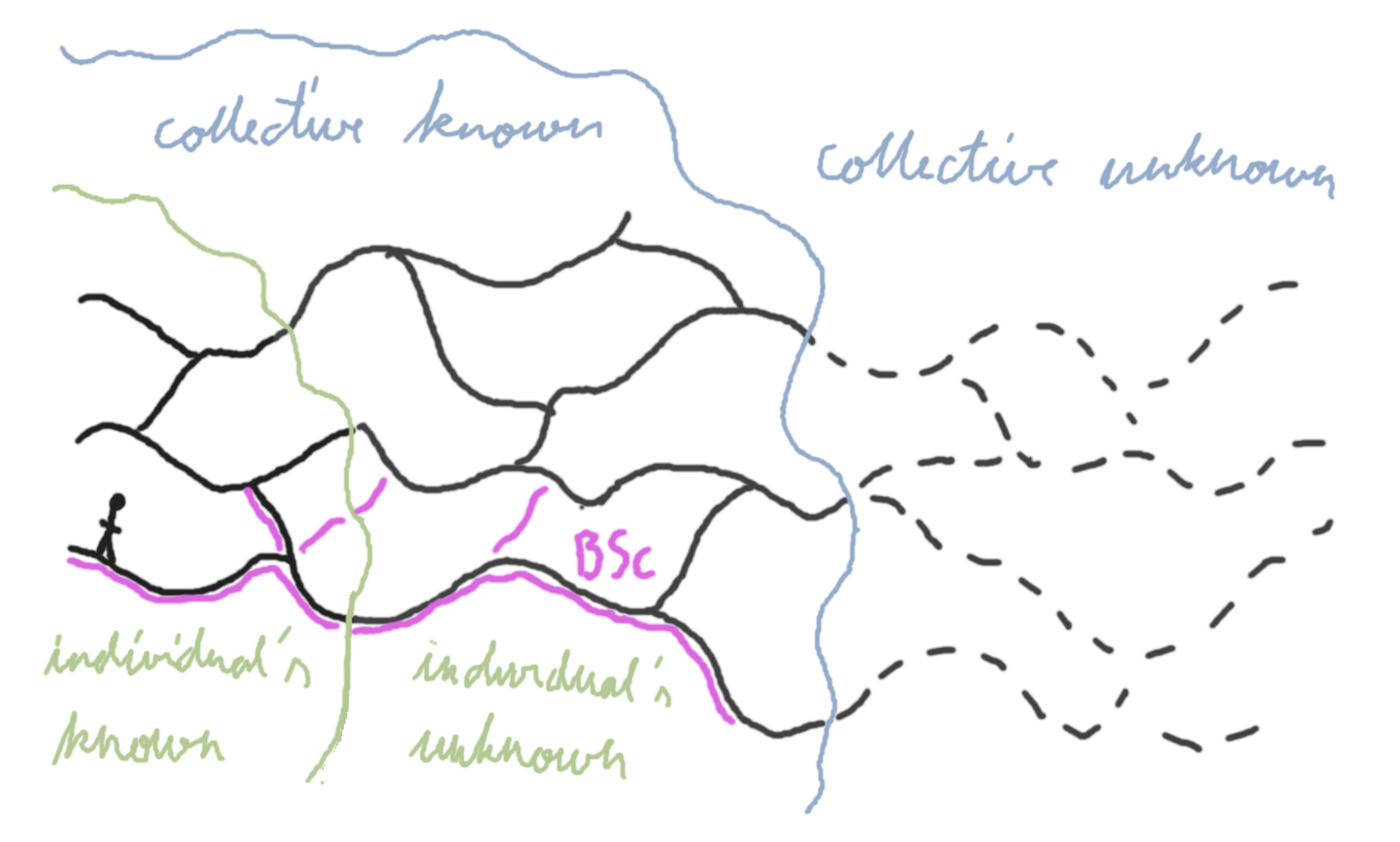 With the exploration skills acquired during the BSc thesis, students are equipped to handle future journeys into unknown areas. Depending on the level of other skills and their goals, the journey ahead might lead into MSc studies. However, it seems to me totally natural that graduated BSc students would want to explore also other areas of life or see their chosen field from another perspective before, if ever, continuing with MSc studies. The aim in the MSc is to go towards the bleeding edge of the currently explored territory and learn to delve further into the unknown, creating new maps and pushing the boundary of the known. That is again to be understood at a meta level, because the maintenance, restructuring or improving the accessibility of the known can also be considered a journey into the unknown. But the final goal is to take the student’s unknown into the border of the collective unknown at the chosen specialization. The aim of the MSc thesis is then to expand that shared border forward.
With the exploration skills acquired during the BSc thesis, students are equipped to handle future journeys into unknown areas. Depending on the level of other skills and their goals, the journey ahead might lead into MSc studies. However, it seems to me totally natural that graduated BSc students would want to explore also other areas of life or see their chosen field from another perspective before, if ever, continuing with MSc studies. The aim in the MSc is to go towards the bleeding edge of the currently explored territory and learn to delve further into the unknown, creating new maps and pushing the boundary of the known. That is again to be understood at a meta level, because the maintenance, restructuring or improving the accessibility of the known can also be considered a journey into the unknown. But the final goal is to take the student’s unknown into the border of the collective unknown at the chosen specialization. The aim of the MSc thesis is then to expand that shared border forward.
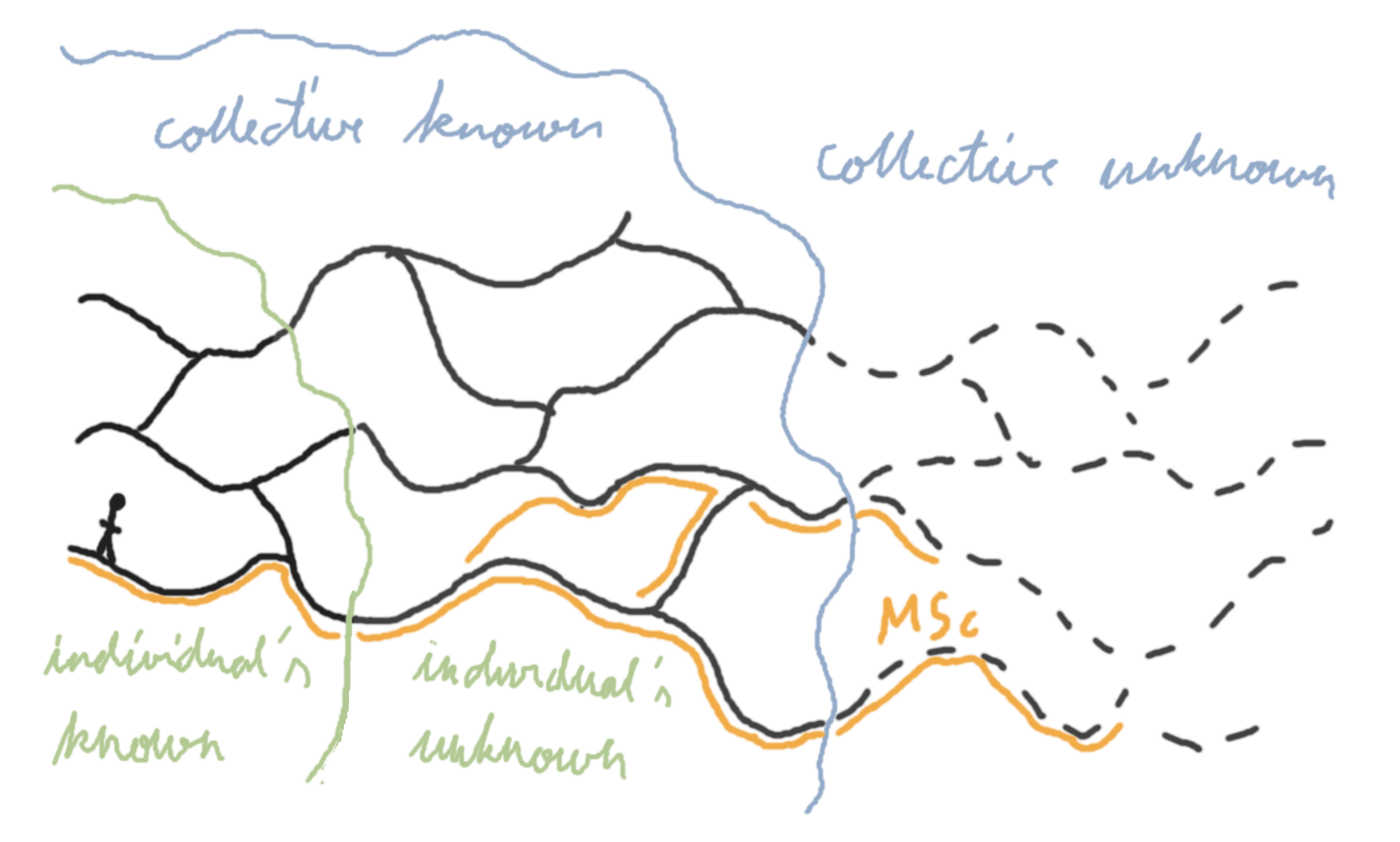 In that regard it is often beneficial to continue in the area that was already explored during the BSc studies and thesis. That way you have already expanded your own knowledge to that area and moving forward to meet the collective border is much easier. In addition you find even more interesting results on the roads you travel and get equipped with a larger toolset to interpret them. Though it may also happen that your first exploration showed you a landscape you rather not wish to navigate. In that case, or in any case between, it is natural to change the trajectory and choose a modified or even a completely different path forward.
In that regard it is often beneficial to continue in the area that was already explored during the BSc studies and thesis. That way you have already expanded your own knowledge to that area and moving forward to meet the collective border is much easier. In addition you find even more interesting results on the roads you travel and get equipped with a larger toolset to interpret them. Though it may also happen that your first exploration showed you a landscape you rather not wish to navigate. In that case, or in any case between, it is natural to change the trajectory and choose a modified or even a completely different path forward.
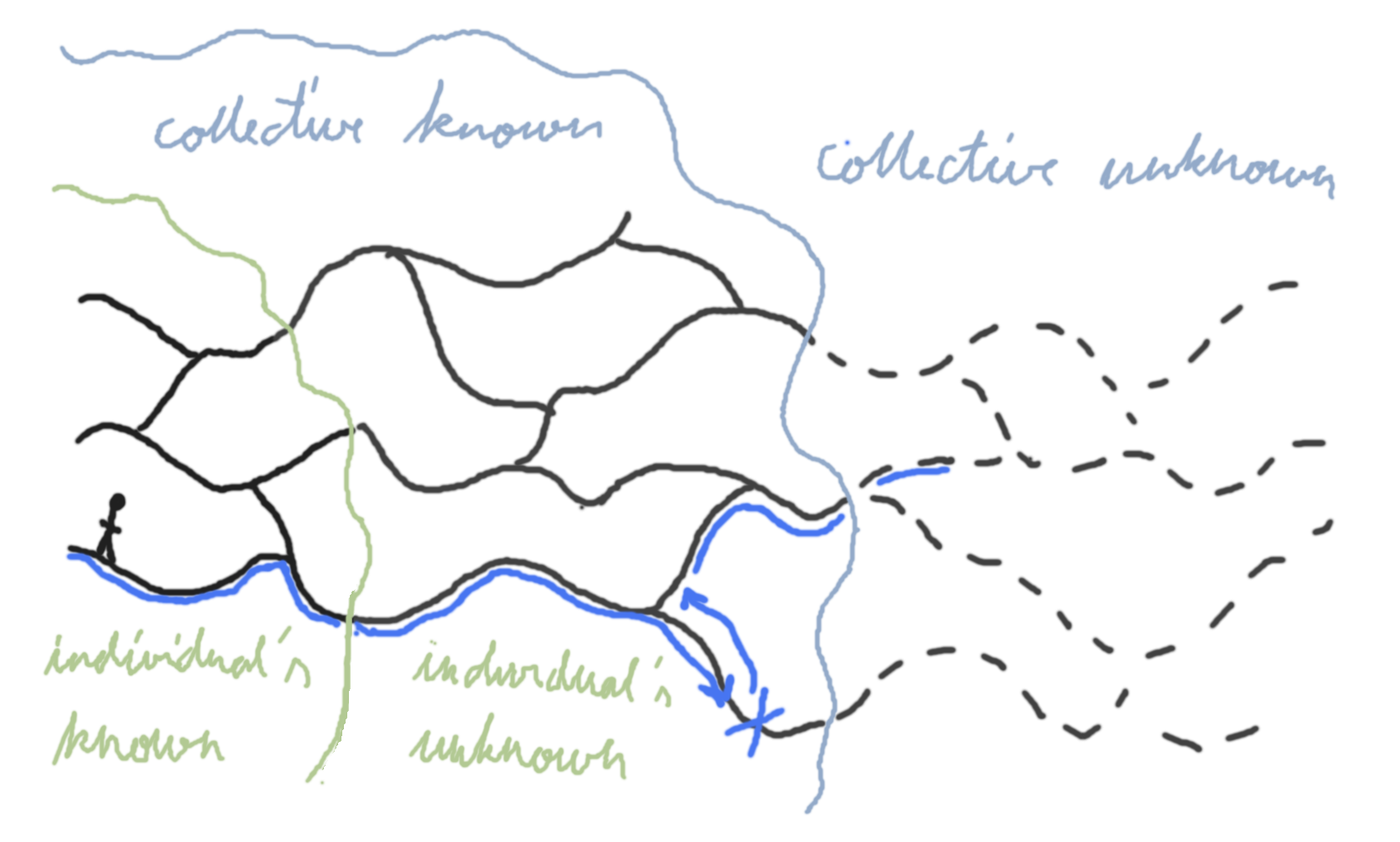
Now that you know the idea behind a thesis, it is time to understand how is a thesis written in Part 2: Written Thesis.

